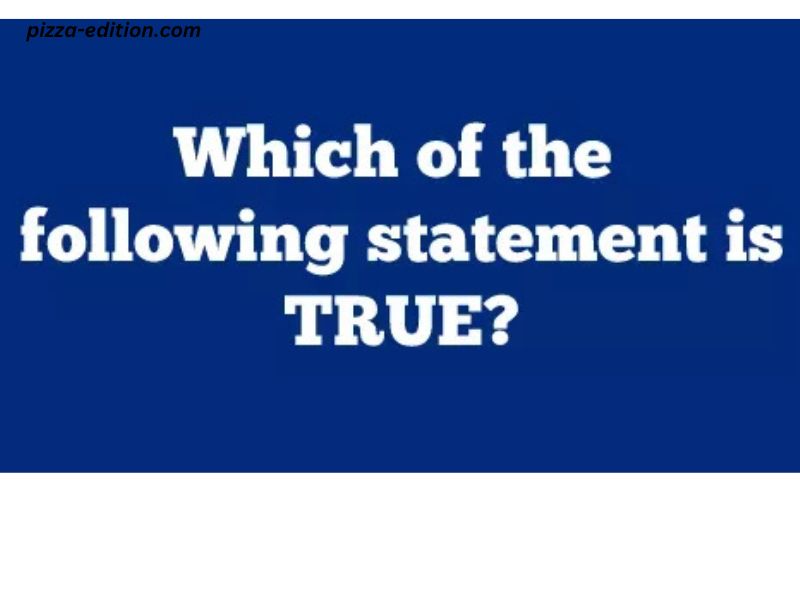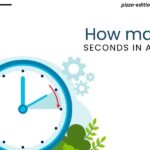In today’s information-driven age, questions like “Which of the following statements is true?” appear frequently in academic, professional, and daily contexts. This query invites us to scrutinize options, evaluate evidence, and make informed decisions. Understanding the nature of truth within specific frameworks is vital for problem-solving, logical reasoning, and decision-making.
Understanding the Context of Truth
The phrase “Which of the following statements is true?” is a common prompt in multiple-choice questions, exams, or quizzes. It requires one to:
- Compare Options – Analyze the given statements critically.
- Assess Validity – Judge the accuracy based on evidence or knowledge.
- Eliminate Falsehoods – Rule out incorrect answers to isolate the truth.
This article explores examples of such scenarios across various fields, including science, mathematics, and communication, to understand how we distinguish true statements from false ones.
Evaluating Truth in Science
In science, truth emerges through experimentation, observation, and peer-reviewed findings. Consider the following question:
“Which of the following statements about water is true?”
- A. Water is a compound made up of hydrogen and oxygen.
- B. Water freezes at 50°C.
- C. Water boils at 30°C at sea level.
- D. Water is a single element on the periodic table.
The correct answer is A, as water is scientifically proven to be a compound composed of two hydrogen atoms bonded to one oxygen atom (H₂O). Statements B and C contradict basic physical properties, and D is scientifically inaccurate.
Mathematical Reasoning
In mathematics, truth is determined through logical consistency and adherence to axioms or formulas. For example:
“Which of the following statements about triangles is true?”
- A. The sum of the angles of a triangle is always 180°.
- B. Triangles always have four sides.
- C. A triangle can have more than one right angle.
- D. Triangles are always isosceles.
Answer A aligns with the geometric principle that the sum of interior angles in any triangle is 180°. The other statements contradict foundational geometric rules.
Cultural Truths and Subjectivity
Sometimes, the concept of truth varies with cultural, personal, or situational contexts. Consider this:
“Which of the following statements is true about communication?”
- A. Effective communication only relies on verbal language.
- B. Nonverbal cues are irrelevant in interpersonal communication.
- C. Listening is a crucial component of effective communication.
- D. Miscommunication rarely happens in professional settings.
Here, C is correct. Active listening enhances understanding and effectiveness in conversations, whereas the other options reflect common misconceptions.
Key Strategies to Identify True Statements
To accurately determine the truth in any scenario, the following strategies can be helpful:
- Read Carefully: Misinterpreting the options can lead to incorrect answers.
- Use Elimination: Exclude clearly false options to narrow down possibilities.
- Apply Prior Knowledge: Use facts, rules, or personal expertise to evaluate choices.
- Look for Absolutes: Statements with words like “always” or “never” may signal inaccuracies.
Common Examples Across Disciplines
1. Biology
“Which of the following statements about cells is true?”
- A. All cells contain a nucleus.
- B. Prokaryotic cells lack a nucleus.
- C. Only animal cells have mitochondria.
- D. Plant cells are not capable of photosynthesis.
Correct Answer: B – Prokaryotic cells are defined by the absence of a nucleus.
2. Technology
“Which of the following statements about cybersecurity is true?”
- A. Antivirus software guarantees complete protection from threats.
- B. Two-factor authentication enhances security.
- C. Strong passwords are not necessary for online safety.
- D. Cyber threats target only large organizations.
Correct Answer: B – Two-factor authentication significantly improves online security.
3. History
“Which of the following statements about World War II is true?”
- A. It began in 1945.
- B. The Axis Powers included the U.S. and Britain.
- C. The Holocaust occurred during this time.
- D. It lasted only one year.
Correct Answer: C – The Holocaust was a tragic event during World War II.
The Role of Keywords in Determining Truth
Keywords such as “true statements,” “valid,” “accurate,” and “correct answers” play a critical role in structuring queries for exams or academic discussions. They help focus attention on factual accuracy while encouraging deeper analysis of each option.
Conclusion
The question “Which of the following statements is true?” is not merely an academic prompt; it is a gateway to critical thinking and knowledge validation. From science to culture, and technology to history, understanding how to evaluate truth is an essential skill.
By employing strategies like elimination, careful reading, and relying on factual knowledge, you can navigate such questions effectively. As you refine these skills, you not only answer the query at hand but also cultivate a mindset that values accuracy, clarity, and intellectual curiosity.




